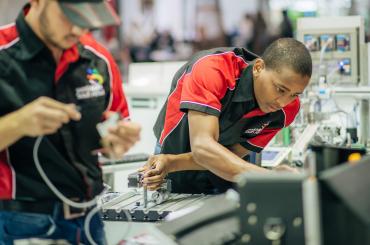

Dani Rodrik
Ford Foundation Professor of International Political Economy, Harvard University, and CEPR Research Fellow.
Dani Rodrik is the Ford Foundation Professor of International Political Economy at Harvard University. He is co-director of the Reimagining the Economy Program at the Kennedy School and of the Economics for Inclusive Prosperity network. He was President of the International Economic Association during 2021-23 and helped found the IEA's Women in Leadership in Economics (IEA-WE) initiative.
He has published widely in the areas of economic development, international economics, and political economy. His most recent book is Combating Inequality: Rethinking Government's Role Economics (2021). He is also the author of Rules: The Rights and Wrongs of the Dismal Discipline (2015), The Globalization Paradox: Democracy and the Future of the World Economy (2011) and One Economics, Many Recipes: Globalization, Institutions, and Economic Growth (2007). His current research focuses on growth strategies for developing economies and the political economy of ideas.
Recent work by Dani Rodrik
-

Industrial policy for micro-, small- and medium-sized enterprises
To promote economic growth and inclusion, the tools of industrial policy must be oriented towards micro-, small- and medium-sized enterprises by targeting firms with high-productivity potential and addressing their growth constraints.
Published 02.08.24
-

Industrial policy for economic development
What have economists learnt about using industrial policy to promote economic development?
Published 17.01.24
-

Building a good jobs economy
Creating well-paying and secure jobs for the future must require a holistic, collaborative strategy that addresses the structural deficiencies in the labour market
Published 26.05.21
-

Does technology hinder development?
Low-income countries are disadvantaged by the introduction of new technologies due to being unable to access skilled employment opportunities
Published 21.08.19
-

Where are we in the economics of industrial policies?
Research on industrial policy has taken off, leading to a better understanding of when such policies effectively harness economic development
Published 21.01.19